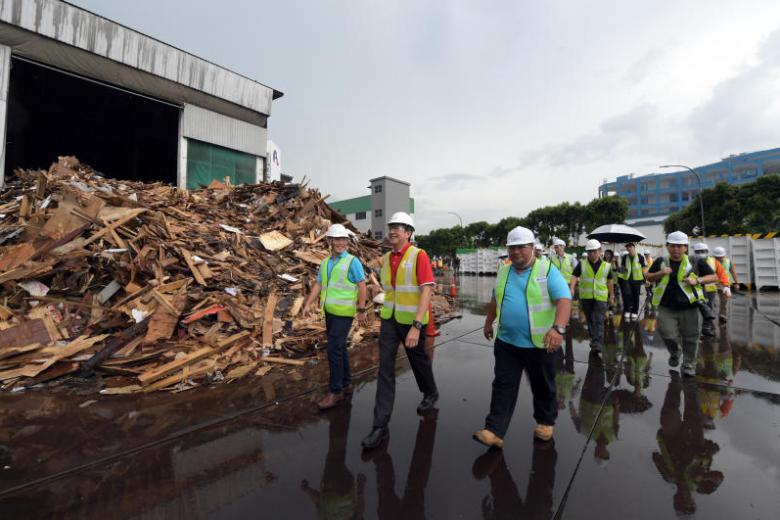SINGAPORE - SembWaste, the waste management arm of Sembcorp Industries, has set up a company training committee (CTC) with the Building Construction and Timber Industries Employees' Union (BATU) which is expected to benefit around 700 SembWaste employees.
A CTC identifies training needs for workers and designs training programmes to equip employees with the skills needed.
Under a memorandum of understanding (MOU) signed by SembWaste and BATU at the former's Material Recovery Facility on Thursday (June 6), a CTC will be set up, comprising union representatives and SembWaste management.
They will be supported by NTUC's e2i (Employment and Employability Institute), NTUC LearningHub and the National University of Singapore.
More than 50 CTCs have been set up in Singapore but this is the first for the country's waste management industry.
In an effort to attract more local talent, SembWaste has set out to change the perception of the industry by transforming its operations, through initiatives such as introducing Asia's first Econic refuse collection truck, which has special features that enhance safety and ease of use.
"The waste management industry is still a very manual industry. People still have a stigma towards it - which is why we want to uplift the industry," said Mr Neo Hong Keat, senior vice-president (waste management) of Sembcorp Industries.
SembWaste is also Singapore's first public waste collector to have voluntarily implemented the progressive wage model (PWM) since 2015, which helps to increase workers' wages by encouraging career progression.
"Through the PWM, people can see a career, and find purpose in what they do - I think that's what would make people want to join our industry," Mr Neo added.
NTUC secretary-general Ng Chee Meng believes that encouraging workers to learn new skills will help to increase productivity.
"The CTC is only the first step," he said. "We hope to do more such that it is not just a training committee in name, but actually moves different aspects of business and workers forward."




